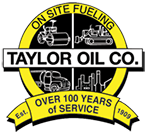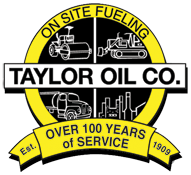Marina Fuel: Tips to Comply with the Clean Marina Program – The State of New Jersey Department of Environmental Protection’s Clean Marina Program puts forth requirements for compliance of certain rules that keep the state’s marinas clean, particularly those serving the Atlantic coastline, the Delaware River and Bay, freshwater lakes, tidal mudflats and deep ocean waters.
The DEP developed this statewide Clean Marina Program to protect important habitat areas catering to a variety of species including algae, plankton, shellfish and finfish. The program encourages marina owners, yacht clubs, boatyards and boaters to do their part to prevent negative impacts on water quality, sensitive habitats and living resources that are located close to marinas.
Here are some helpful tips to help you comply with the regulations as a responsible marina:
- Understand the benefits of becoming a Clean Marina: First, educate yourself on how you can benefit from this initiative such as generate new sources of revenue, reduce costs associated with waste disposal, and attract customers that follow good boating practices. Free guidance and technical assistance are available through site visits and at informational workshops.
- Distribute relevant information to your tenants and boaters at your facility: Show them these helpful Clean Boating Tips Sheets, with topics covering things like Vessel Cleaning and Maintenance, Petroleum Control, Vessel Sewage, and Waste Containment and Disposal.
- Be mindful of backsplash: Any backsplash that happens out of the fuel intake or as overflow out of the vent fitting can pose a danger to sea life. It can also waste money, stain boat hulls and damage striping.
- Fill tanks to no more than 90 percent capacity. Remember that gas drawn from cool storage tanks will expand as it warms up on your boat.
- Don’t rely solely on the fuel gauge. Listen to the filler pipe, use a sounding stick, and know what your tank’s volume is.
- Fill portable tanks ashore. Spills are less likely to happen and, if they do, they’re easier to contain and clean.
- Wipe up all drops with oil absorbent pads immediately.
- Take it slow when starting and finishing fueling.
- Employ proper bilge maintenance: Because engine oil builds up in the bilge, you need to take certain precautions or the oil could be pumped overboard with the bilge water.
- Keep up with regular maintenance on your engine to prevent large amounts of oil from being released.
- Use premium engine oil to improve engine performance and reduce pollution due to cleaner burn.
- Be on the lookout for contractors or marinas that offer bilge pumpout services.
- Contract with a marine fuel supplier like Taylor Oil to handle the transfer of fuel. Having a professional do this for you reduces the risk for spills and other environmental hazards.
Contact Taylor Oil
Taylor Oil is your source for marina fuel. In fact, we now offer Slipstream™ Premium Marine Fuel, a blend of fuel treatment added into gasoline and diesel fuel. We invite you to contact us today to learn more about how we can help you comply with the Clean Marina Program.


